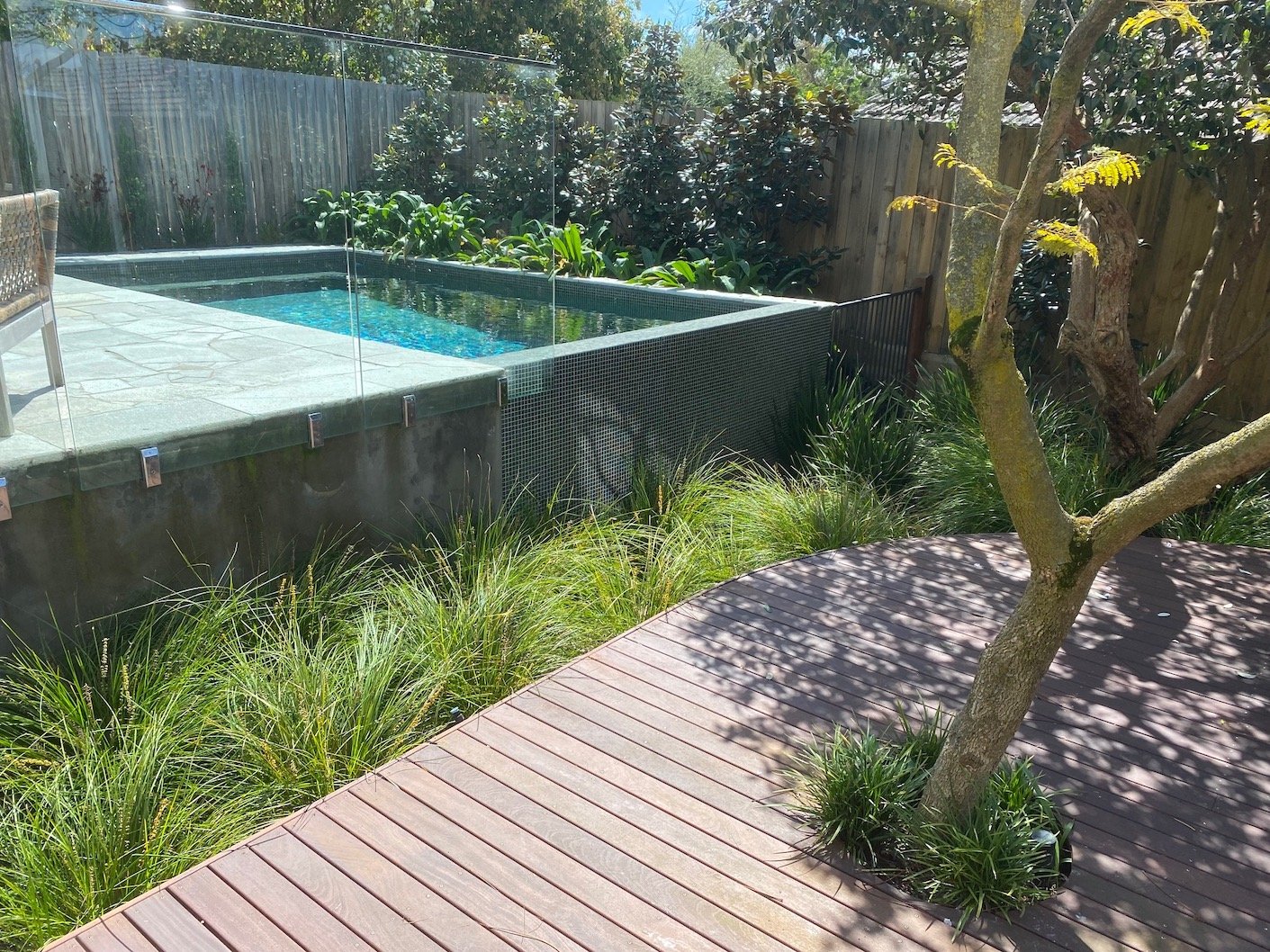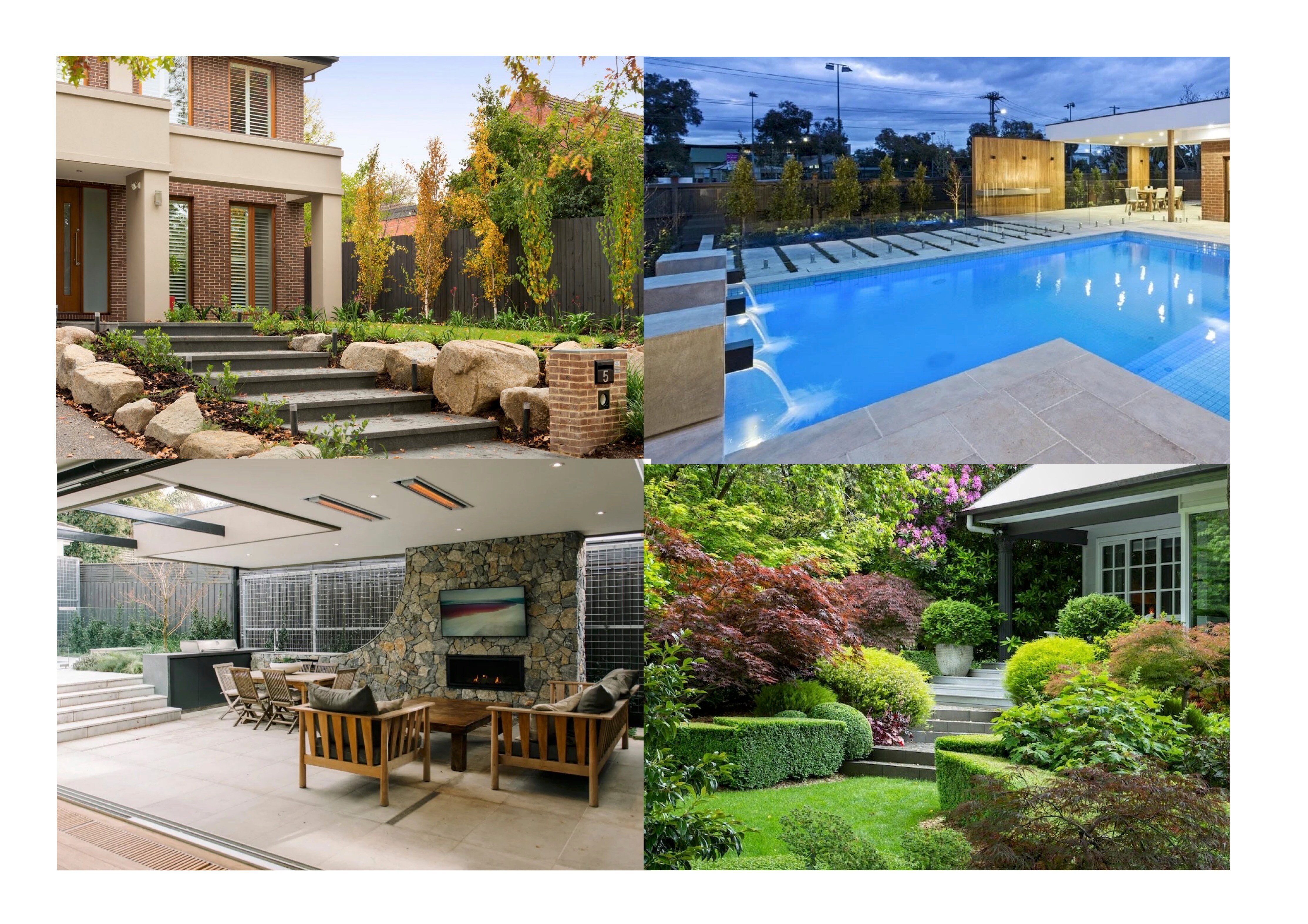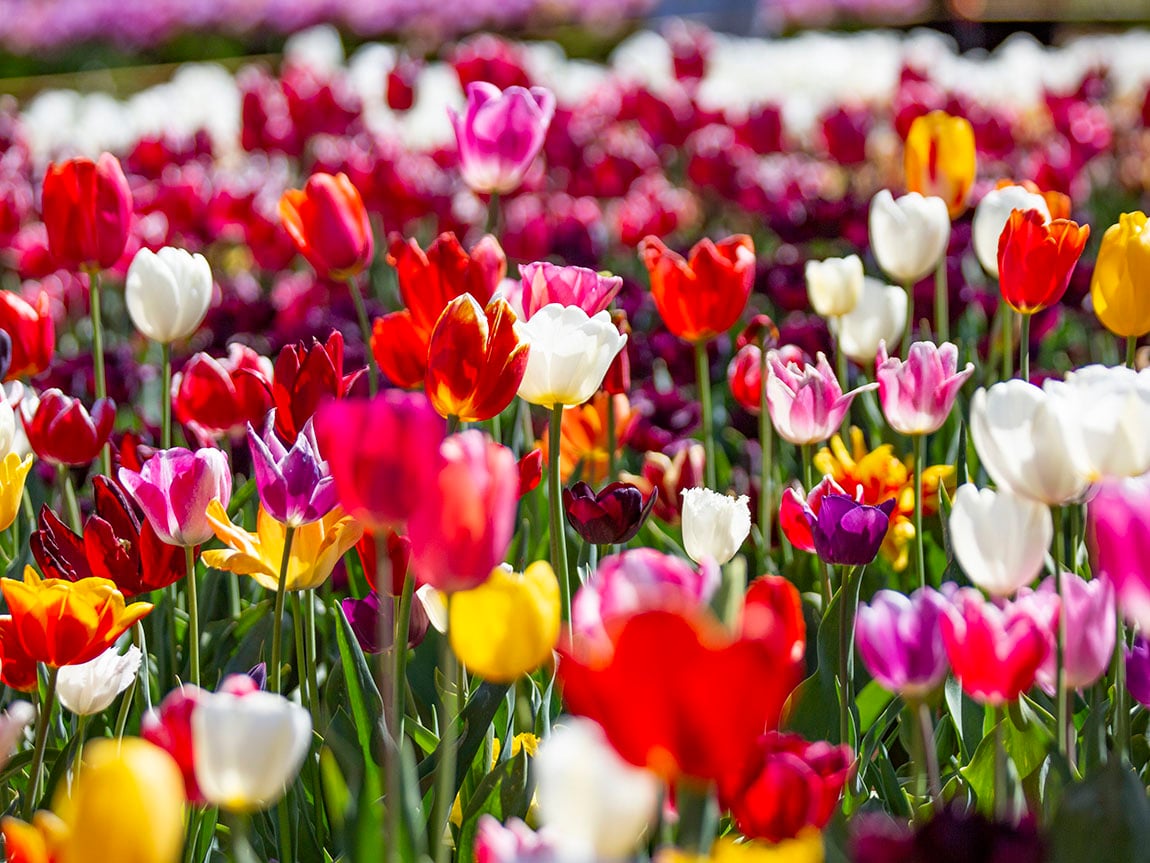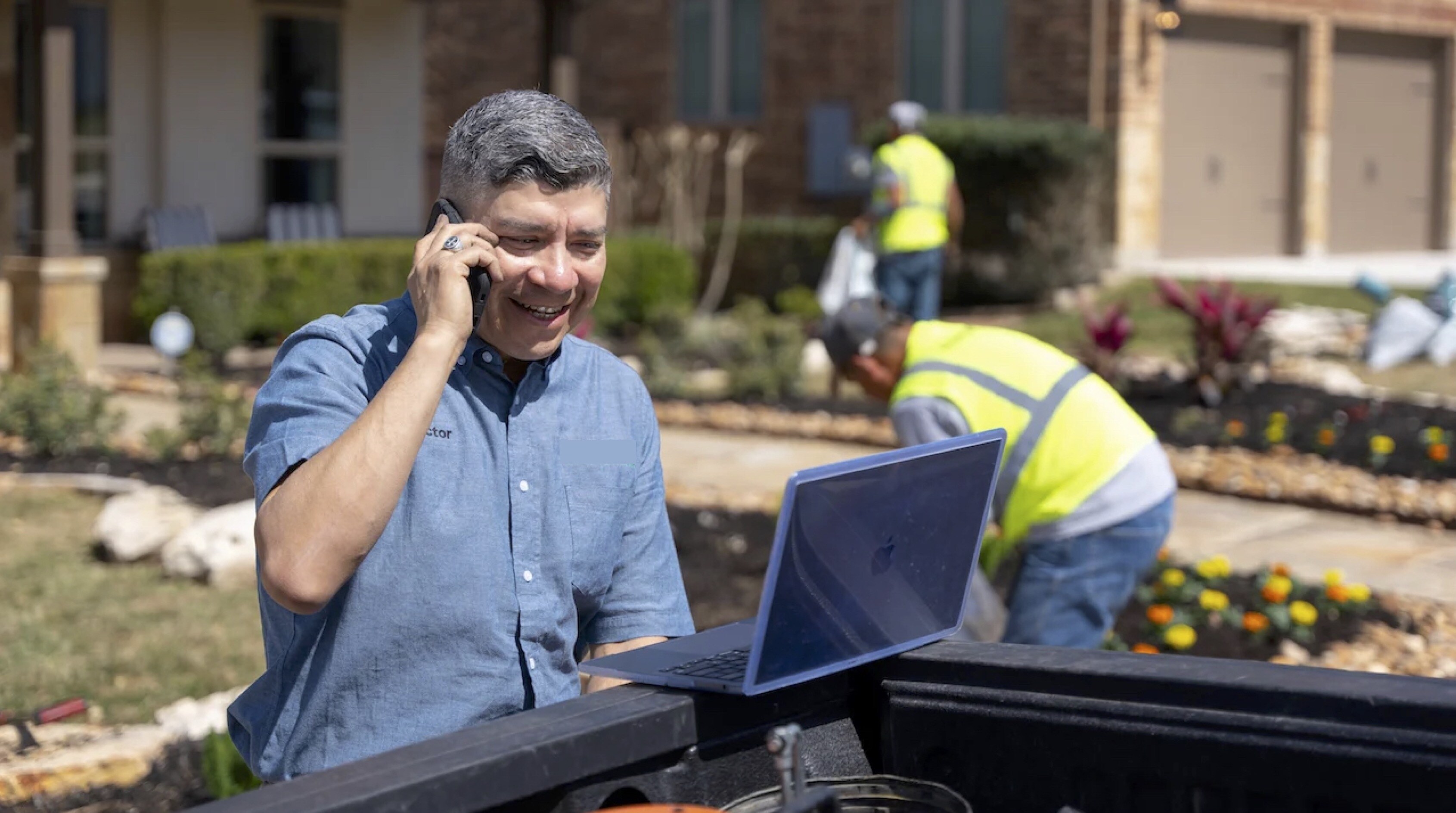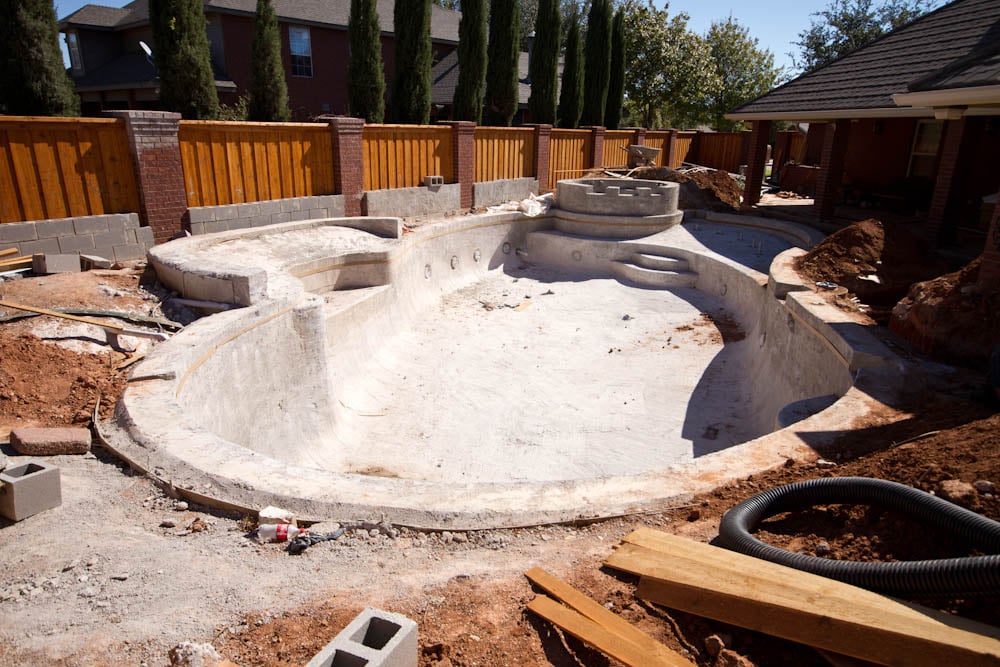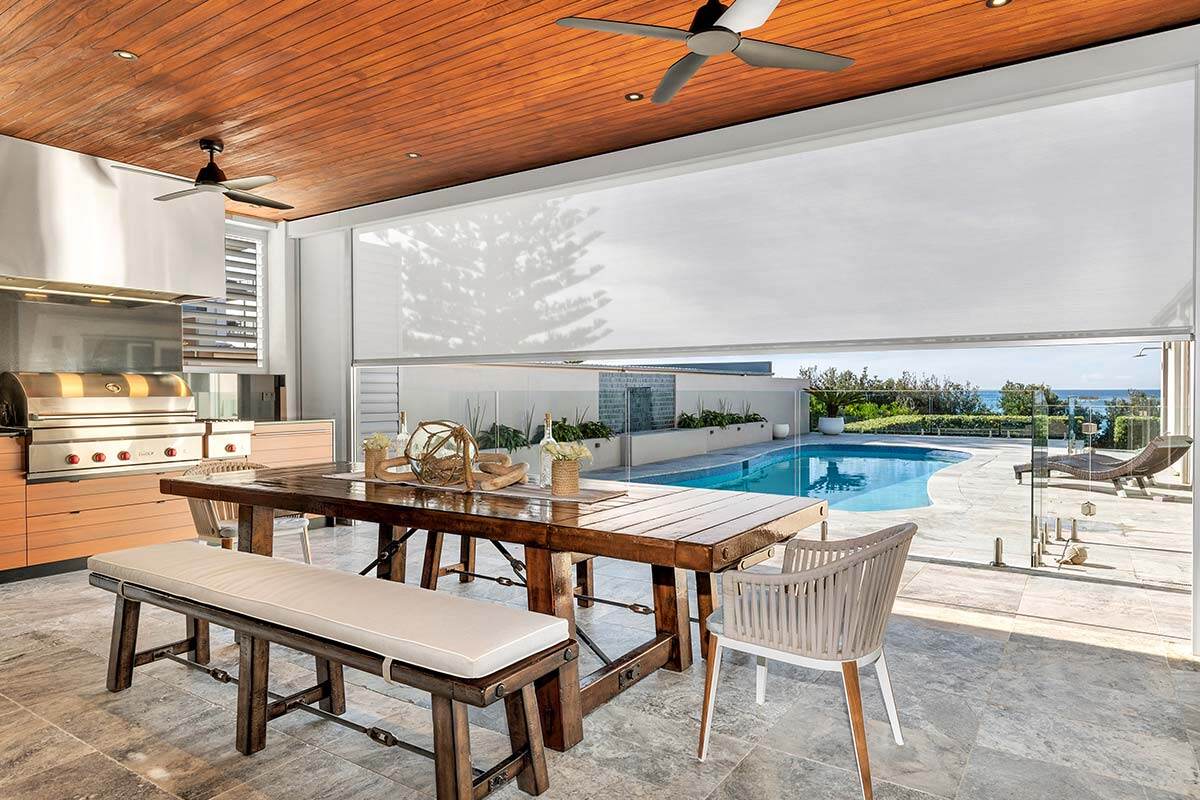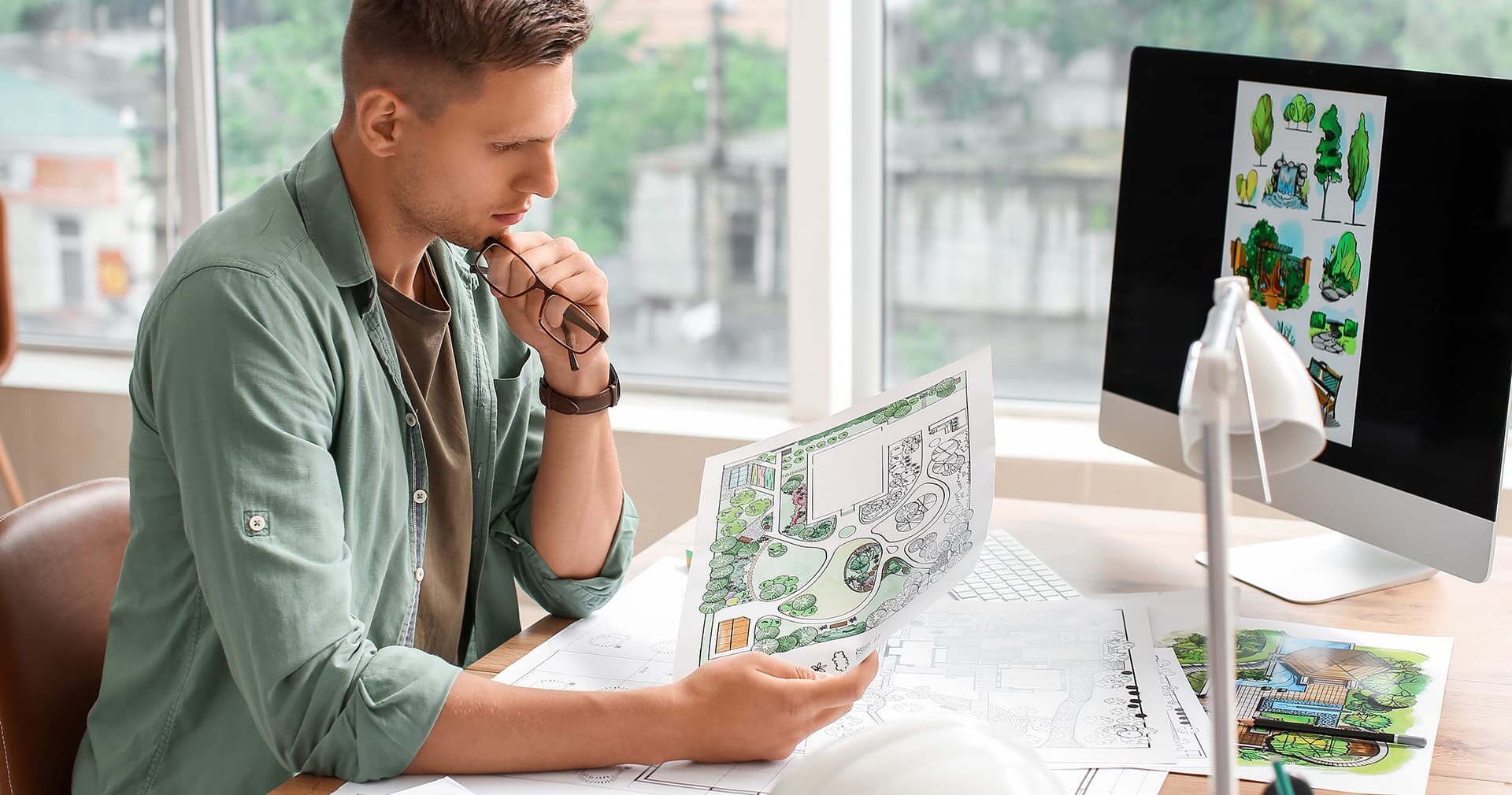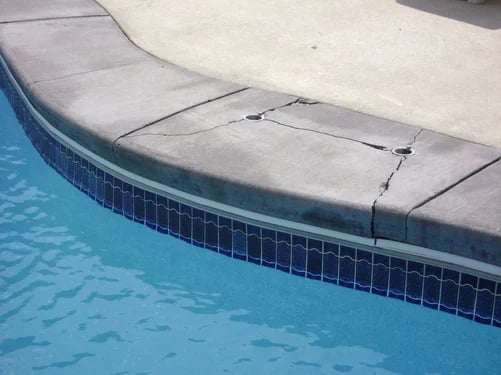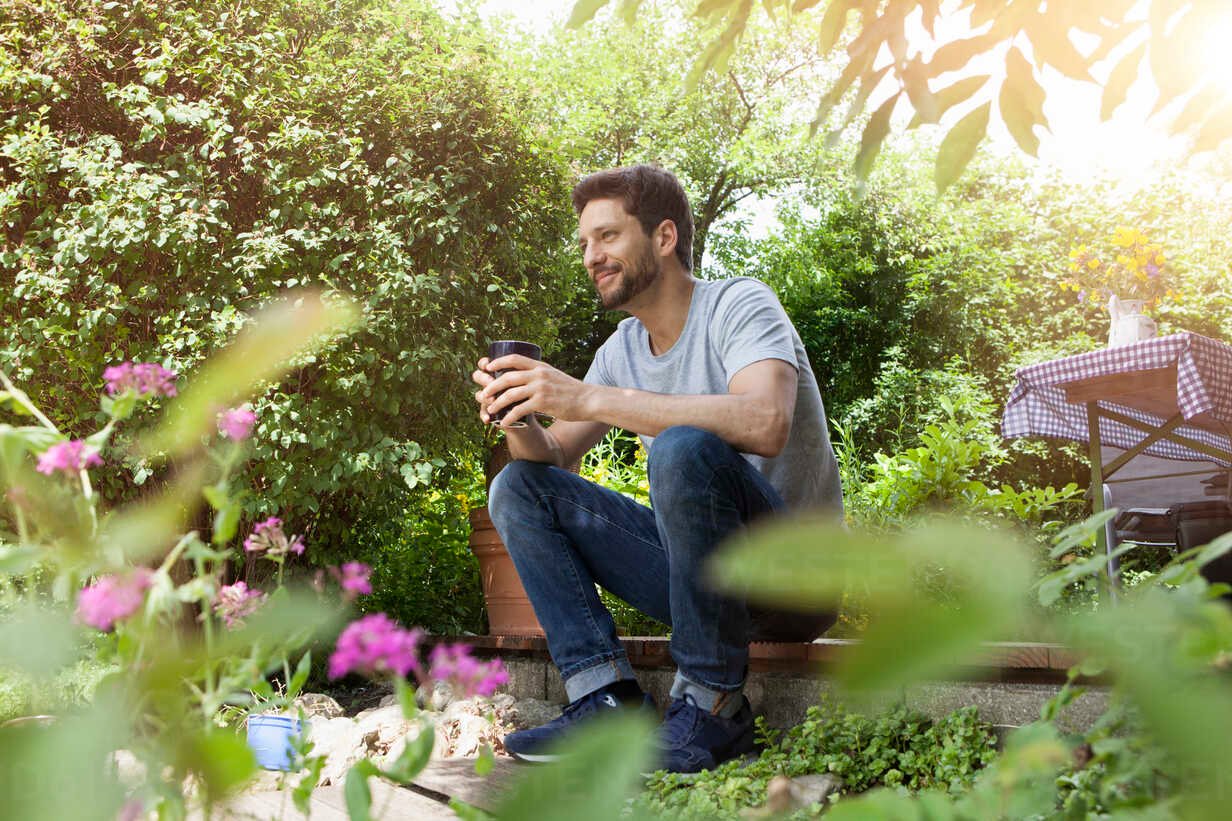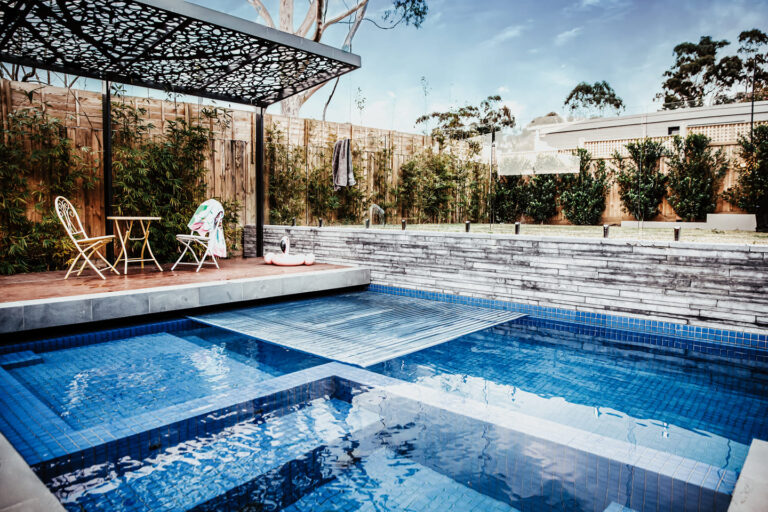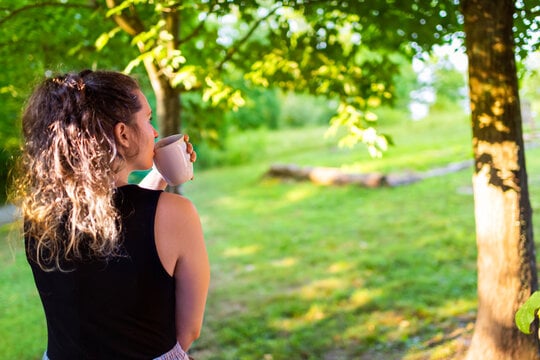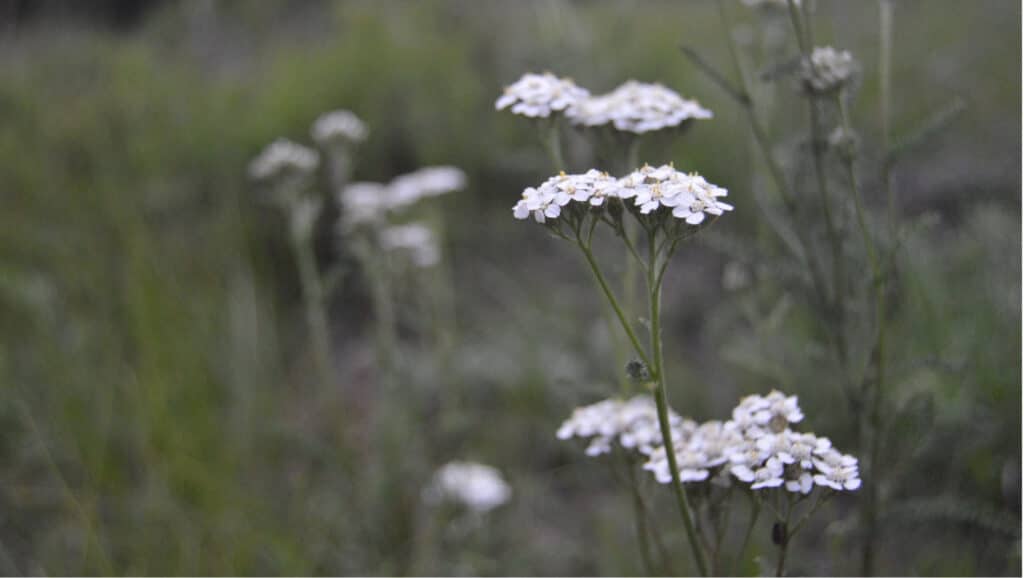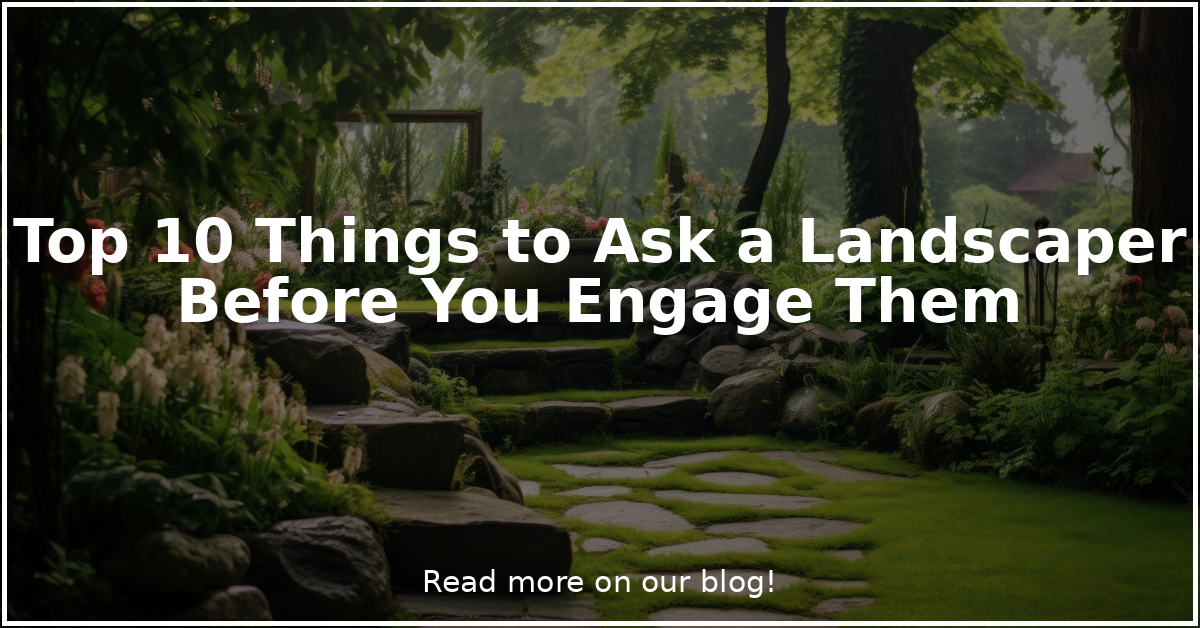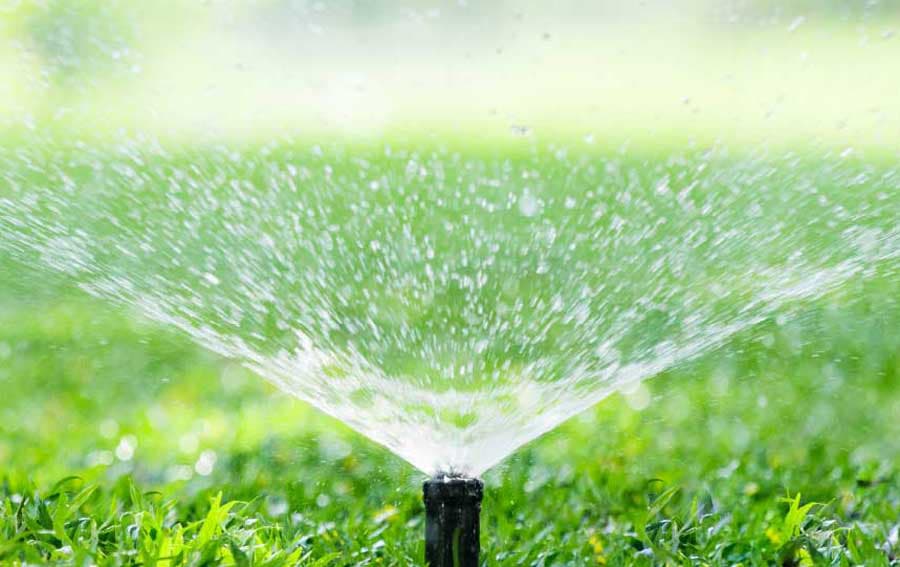
Are you planning a new garden? Are you considering saving some money by not installing an irrigation system? Are you unsure if you even need an irrigation system (or sprinkler system) for your garden?
Having created more than 500 gardens for our clients over the past 30+ years, we know a lot about irrigation systems: what they're good for, how much they cost and what types of gardens they are best suited for.
If you're looking for some independent unbiased advice on whether to install an irrigation system in your new garden, take a minute to read this article. We hope it will help you come to the right decision for your new garden project.
Why even install an irrigation system?
Apart from sunshine, the most important thing all plants need to survive is water. But how much water varies enormously from plant to plant. A succulent for example might need a tiny amount of water every year compared to say Impatiens or Begonias.
The other factor is clearly the weather. Plants need much more watering in Summer than in Winter obviously.
If you don't have an irrigation system, then you'll need to resort to a handheld hose or a sprinkler you can move around. When a 35° day is forecast you might need to get up very early to avoid standing in your garden in the heat for hours or trying to walk around your entire property making sure your garden gets a good drenching for the day ahead. Even in the morning, this could take you a couple of hours.
So generally people will install an irrigation system for the following reasons:
- It can save you considerable time watering
- It ensures an adequate volume of water is applied to soak right down to your plants' roots
- It helps keep the soil moist as is often required for optimal plant growth (particularly important in sandy soils which don't retain moisture)
- It is easily adjustable for different seasons and can be totally turned off over winter
- It allows for different zones of the garden to receive the correct amount of water at the correct time through programmability and automated timers, etc
Why you might not install an irrigation system
Despite the many benefits of an irrigation system, there are still many people who choose not to install them. We do have some clients who still prefer to choose this option.
Some of the factors that can lead people to not install an irrigation system include:
- Perceived cost (which can sometimes be inaccurate)
- A belief their type of garden won't need it (eg Native Garden, Japanese Garden etc)
- Local climate or weather conditions "We get a lot of rain where we are"
- No perceived need - "We don't go on holidays so we're never away from the house"
- No desire - "We actually enjoy watering"
- Fear of overwatering
- The perceived complexity of operation, programming, setting timers, etc
- Routine care, repair and maintenance (Sprinkler systems do suffer wear and tear and can need repair/replacement)
- Underground pests (if your area is subject to underground pests that could damage the system)
Now these can all be apparently valid reasons why someone might consider not installing a sprinkler system in their new garden. Some can be very valid personal choices. But some can be based on misconceptions that don't really stand up when you know the facts.
I'm planting a native garden so I won't need one
Not surprisingly we hear this response a lot when discussing potential irrigation systems for someone who is planting a native garden.
On one level it can be true that native gardens may require less watering than some other types of gardens, but that doesn't mean they require no watering at all.
A point to remember. When you first plant out a native garden, those plants will have been grown in a nursery where they are used to being watered probably every day. Having been in pots they will also have fairly shallow root systems. When you plant them, it will take quite some time for them to develop the deep root systems they need to find water sources underground. Therefore they will need regular watering at the beginning to ensure they don't die.
Also, just because a plant is native to Australia does not mean it is universally drought-tolerant. A plant native to Perth is not the same as a plant native to Port Douglas in Far North Queensland even though both are called "native". Each will be used to receiving vastly different amounts of water. Even plants that are defined as native to Victoria can have completely different watering requirements. Again a plant native to the wet southern coast of Victoria will be used to receiving a lot more water than one that grows up in the hot dry North of the State.
So while you can design a garden using exclusively Victorian natives which can be extremely hardy, don't assume all natives selected for your garden will require no watering.
With an automated sprinkler system, you can still set it to water a native garden, but just at a lower level of frequency and water volume. So you still enjoy all the benefits of the system without putting your garden at risk of dying through benign neglect.
What happens when you go on holiday?
Another factor affecting whether or not you install an irrigation or sprinkler system can be how often you go away for holidays or other trips over the summer and for how long.
If you're only away for a few days at a time you might be able to get a good friend, neighbour or family member to stand in your garden and hold a house for a day or two, but they're unlikely to want to do it for weeks at a time.
Standing in a garden with a hose at the end of a long 38° day is hard, hot work. You really have to ask yourself if the person doing your watering is going to really soak the garden as much as required or will they just do a 'token effort'? Do they even understand how much watering is required? Are they a gardener themselves?
Consider that these days you could be walking through the streets of Rome on holiday while checking the local weather back home on your smartphone and adjusting your irrigation system in seconds using an app. How does this compare to messaging a friend back home to say "Looks hot today, could you give the garden a bit more water please, thanks!"
How much watering do exotic plants need?
By definition, an exotic plant is any non-native plant. (Exotic literally means "not from around here"!)
It's very common these days for clients to say to us "I want a no-maintenance garden". Our reply is "We can do low but not NO." Part of the maintenance of a garden is watering. And that has to be done by someone or something on a regular basis.
A Gardenia and an Agapanthus will have different watering needs even though they may be in the same garden. You could avoid watering your Agapanthuses once they are established in most cases. Gardenias on the other hand will definitely need watering in Summer if you want them to thrive.
However if you have Agapanthuses and Gardenias mixed in together in your garden, both will likely get the same amount of water if you use an automatic watering system but that's OK. The point is, in most cases exotic plants will need watering. And you're probably more likely to underwater them than overwater them.
If you were able to inspect 2 identical gardens where one had regular watering through an irrigation system, and one had irregular hand-watering, the automatically watered one would always be far more lush.
Watering your edible garden
For some people, hand watering the things they are growing in their garden to eat can be a labour of love. Standing there watering the fruit trees or everything in your beloved veggie garden, can all be part of the nurturing experience of watching them grow.
But no matter the romance of this, it can be arduous when you realise that some of those newly planted seedlings might need watering several times a day over the hot weather.
For regular garden beds and lawns, the basic principle of watering is "water less often but water more deeply." For a veggie garden, the basic principle can be "water more often but for short periods at a time". This can be very difficult to do without an automatic system unless you're retired or work from home.
Getting out there 3 times a day in the peak of summer is just hard, hot work.
Using an automatic watering system that can be adjusted or turned on and off via your smartphone makes for maximum convenience and minimum effort.
We can tell you that the majority of our clients who are keen gardeners and have a veggie garden and fruit trees do tend to opt for an automated watering system as it essentially guarantees the survival of their edible garden.
Will my lawn need irrigation?
The answer to this question comes down to what type of grass you are planning to have.
Runner grasses like Buffalo or Kykuyu tend to be strong and will tend to look after themselves in most conditions. However, if you have very sandy soil even these seemingly hardy grasses can struggle to survive as this type of soil retains very little moisture. (It all just soaks deeper and deeper underground.)
Cool-season or seeded lawn-type grasses like Tall Fescue, Ryegrass or Bluegrass are not drought tolerant and require a lot of watering. They can easily die off in Summer due to lack of watering. They would, in our opinion, be the types of grass that would definitely require an irrigation system.
If you are having turf laid you might ask does this need an irrigation system? When you lay turf, watering is vital every day at first. If you don't provide enough water it can easily and quickly die off. (In the early days just one very hot day can be enough to do it.) As the turf becomes established over time you can ween it off daily watering. But again, depending on the type of grass and the season it is laid, you can get away with watering the tougher runner grasses less frequently. (Sometimes a sprinkler is enough to do the job.)
Once your turf is established the other factor is to ensure the grass is well maintained, i.e. not cut so short it exposes the roots and goes brown. If you do look after it properly and see it is well-established, you may find you only need to water it very infrequently if at all.
If you are thinking you don't need to install a sprinkler system now and can just do it later, it's not that simple. The cost of installing a system after you've laid your lawn, can be much more prohibitive than installing one in your garden beds. And it can lead to a very patchy-looking lawn, where new sections of turf may need to be laid where the underground pipes go.
The bottom line is that if you wish to have a lush, green lawn, that you will always be proud of (and one that can easily add resale value to your home), installing a sprinkler system can help keep it looking like the best lawn in the street.
Isn't an irrigation system expensive?
If your budget is tight, you might consider saving the cost of an irrigation system for your new garden. If you do, you might be able to redirect those funds to another part of the landscaping project.
However, the trick to avoid when assessing whether to install an irrigation system is to make sure you don't compare the cost of it to no cost at all.
If you don't install an irrigation or sprinkler system in your garden you do increase the risk of your lawn or some plants dying. Worst still would be if your beloved feature tree like an expensive Japanese Maple that could be worth several thousand dollars died. So the cost to replace these can be quite high if they die.
So the apparent savings you made by not installing the irrigation system can evaporate like moisture on a hot Summer's day!
One final point to consider is that if you're considering not installing an irrigation system when your garden is laid down just to save money, if you do change your mind later on and want to install one then, it will cost a lot more. Plus installing it can lead to damage in your garden.
Digging up garden beds and lawns to install the irrigation system is a much bigger job than laying down the system as part of the landscaping process.
So we urge you to consider the pros and cons of installing an irrigation or sprinkler system as part of your landscaping works before choosing one way or the other. And remember there is more to think about than just the cost.
We hope this article has been useful in helping you make a decision. If you need further advice in this area or any aspect of landscaping or landscape design, please don't hesitate to contact us by phone or email.
Articles covering Landscape Design and Construction in Melbourne...
How to calculate an accurate budget for landscaping
What is the true value of a landscape designer?
Is Whyte Gardens the right choice to landscape your garden?
Founder of Whyte Gardens
Topics:

